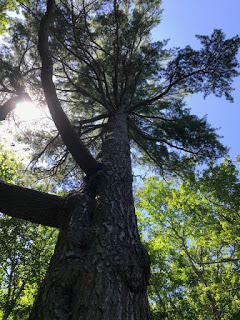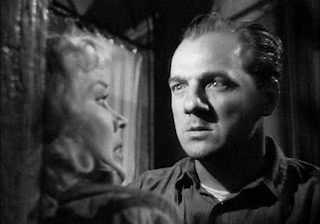Richard Goodman's Blog, page 21
August 13, 2020
Notes on a courageous writer
Lacy Crawford.
She published a memoir in July, Notes on a Silencing. So much is strong as steel in this book. Not the least of which is the guts it took to write it. But no mistaking, this book is a font of startlingly good writing.
It takes one event in the author's life, a sexual assault when she was fifteen, and weaves the story masterfully around all its repercussions, of which there are many. There are slashing emotional wounds bestowed upon this girl. One thing stands out: she was alone. In every way.
Notes on a Silencing takes place, mostly, at St. Paul's School, a storied, elite prep school for boys and girls in New Hampshire.
Crawford was 15 when she got a phone call one night from a boy at school she hardly knew. He was distraught. He said something had happened with his mother. Would she please come to help. She did. That boy and another boy brutally raped her orally. She didn't know it then, but one result of this crime was she contracted herpes.
The book is the story of what happened before and after that night. It's ugly and will shake you.

There is not a single drop of self-pity in this book. You, the reader, will supply the pity, the outrage, the anger and the sorrow as you read this story. There is much cowardice here, not from the author, but from St. Paul's and its administration and teachers. Not to mention lying and, as the title suggests, attempts by the school to silence Crawford.
Lacy Crawford is able to describe the machinations, pettiness and outright cruelty that flows through prep school dorms better than anyone I've ever read. Having attended one of these so-called elite prep schools for five years myself as a boarding student, I can tell you that she has perfect pitch when it comes to describing the particular form of cruelty that arises from youth who come from money and privilege.
The humiliations and emotional agonies she experiences many. You should read her story. She tells it so well.
The courage? After having told her story many times to people who doubt her and even—of course!—accuse her of being at fault, Crawford decides, nearly thirty years after the events, to write about them in a book. She doesn't hold back on—anything. She's married now, happily, and has two small sons. On day, they will read her book. She know this, of course. Yet, she proceeds. It's a beautifully written book and a humbling experience to read it.
July 23, 2020
Anting
Looking out a window yesterday, I saw a fluttering of black near a rock nearby. The black was twisting and writhing. Birds?
Trusty binoculars at hand, I picked them up and focused. Two crows. They were moving about in the dirt on their bellies. They were flashing their wings, often changing places, one moving over and around the other. Constantly shifting. Like a modern dance but an amateur one.
It seemed more intense than a normal dirt bath. It went on and on. Then one bird suddenly hopped onto a plank nearby. Began preening. Extensive beak work on the wings and feathers.
Then it was all over. They flew away.
I went down to have a look. I saw near the rock: hundreds of ants racing about, at double-speed, like a miniature Grand Central Station at 5:35pm on a Friday. Heavy traffic! Well, they'd just been stirred up by two black tornadoes.
What was...the deal?
I went upstairs and Googled, well, "Crows and ants." And lo and behold, "Anting" came up.
"Anting is a maintenance behavior during which birds rub insects, usually ants, on their feathers and skin," Wiki says.
A word and an activity in 75 years of living I'd never encountered. Here's what Stanford University has to say about it:
"The purpose of anting is not well understood, but the most reasonable assumption seems to be that it is a way of acquiring the defensive secretions of ants primarily for their insecticidal, miticidal, fungicidal, or bactericidal properties and, perhaps secondarily, as a supplement to the bird's own preen oil."
Come to think of it, how did the crows know that there were ants there? A rush hour of ants? I'd walked by the rock many times and not noticed ants.
Let there be mysteries.
July 17, 2020
Fog
Driving from Belfast, Maine back to Camden, I run into a sweep of fog. I’d been driving through full sunshine up until then. My car climbed and descended a small hill, and there it was: a white presence drifting over the hills and the road before me. The road is not a half-mile from the sea, so it makes sense. Still, a surprise.
Fog like this—not obscuring the road completely for the foreseeable future and so not striking fear in a driver—is a delight. Just enough white to be called fog and yet not enough to be perilous. Fog can be treacherous, but not today.
The fog is delicate, snowy, insubstantial; yet it’s there. I know it’s entirely water, yet, unlike water, how graceful and airy and white it is.

When fog moves, it often drifts, taking its good time, like a jellyfish being eased on by the current.
Sometimes, of course it stubbornly sits there, unmovable, the last person at the party.
The poet Marianne Moore writes about an ocean storm: “It is a privilege to see so / much confusion.” I think it’s a privilege to see this little world of fog. I bask in it.
After five minutes of driving, I’m through its presence and back in sunlight. Regrettably.
Was I seeing things?
Who knows why there was fog in just one short stretch of land and road and nowhere else? There’s a reason, of course. But I think if I knew that reason, the science that is, I’d be the less for it.
Leave me with my child-like wonder.
July 11, 2020
Seventy-five
Today, I turned seventy-five.
You kidding? I think you have the wrong man. Seventy-five is an age for, for old people. Not for me. Who's seventy-five, or 75? Eleanor Roosevelt. Walt Whitman. Miss Havisham. The Pope. Not me.
I feel like someone has give me a coat that I didn't order and that is too big for me and told me to put it on.
"I don't want to put it on," I say. "It doesn't fit."
"Put it on anyway. You don't have a choice."
Ok.
I was talking about this to a friend yesterday.
"Jesus, I'll be seventy-five tomorrow!"
"Age is just a number," she said.
"Yes, and in my case, a big one."
That guy who jauntily walked down the streets of New York City in 1975, age 30, is now 75? No—he's still the same guy. Still filled with a sense of wonder at everything around him. Depressed, yes, now, because of the maelstrom outside. But that's not unique to me. Mostly, getting up wide-eyed. Sap flowing.
Speaking of that.
Looking out my window in Maine I see an eighty-foot Eastern white pine not fifty yards away, partially shrouded in fog. ("Shrouded" perhaps a tad unfortunate choice of word.) It's noble as any king or queen who ever lived—maybe more so. Looming, with huge branches going in awkward directions for reasons I wish I knew. Silent, uncomplaining, constant. Ancient, witness to so many comings and goings of us pipsqueak humans. Breathing, too, like me. Useful, earning its keep, many times over. Breathing in carbon dioxide and breathing out oxygen. I just read one large tree can supply a day's oxygen for up to four people.

Old tree, a lot older than me, let me look up to you. Let's take a deep breath, both of us. Still many things to do.
July 1, 2020
Living in a new place for a short time and trying to understand how everything works
Every time I stay in a new place, it's the same situation. I have to fiddle with shower handles to discern the right balance between hot and cold, something I've long established in my own place. Several screams later, I begin to make the proper adjustments. Finally, after perhaps a week, sometimes even longer, I determine precisely how to reach that correct balance of hot and cold water to produce the ideal shower.

The process is the same with everything. My stove, for example, has new mysteries of oven temperature to deal with. Is its 350 degrees the same as my stove's at home? What about the burners? They're electric, not gas, like mine. The cultures are entirely different between gas and electric. This adjusting takes up almost two weeks. In the process, I burn several dishes, and myself.
Lamps, windows, cabinets, even chairs--they all require learning curves. Where's that switch to turn this &^%$# lamp off?
Finally, after four weeks, I think I've learned how to make everything work according to my own particular routines and predilections.
The time to leave is just around the corner.
I can't take these highly honed skills and newfound knowledge anywhere else. They only fit here, in this apartment.
Maybe I could loan myself out as a kind of apartment docent to anyone else who rents this place.
"Now, you'll notice this window shade is rather temperamental. I would suggest an angled pull on the cord, with the slightest tug at the end...."
Like everyone else, I just want to be useful.
June 19, 2020
Telling a lie
I don't believe them.
It's almost impossible for me to go through the day without telling a lie. I lie in order not to hurt someone, for example. Of course, the truth isn't necessarily called for when not asked for. But sometimes you're asked for it, and sometimes it's better not to provide it. If they ask you, are you going to tell your child she or he wasn't less than wonderful in the school recital? And if you do tell them they just weren't that good—which is the truth, mind you!—well, go live with the look on their face.
But, hey, you can say you never lie. Good for you.
Someone asked playwright Tracy Letts what he says when he sees a play written by a friend that he thinks is awful and the friend asks him his opinion.
"I lie!" Letts said. "I lie magnificently!"
I agree with what one of Graham Greene's characters has to say about this: "The truth, he thought, has never been of any real value to any human being—it is a symbol for mathematicians to pursue. In human relations kindness and lies are worth a thousand truths."
Of course, sometimes lying is despicable. If the intent is to deceive, to cause harm, simply to gain an advantage, well, it's ugly. Sometimes you have to tell the truth. You're a coward if you don't. I often fail here. I lie when I shouldn't. Not proud of that.
I side with Tennessee Williams. I trust his sense of morality. In A Streetcar Named Desire, Mitch confronts Blanche with some unsavory details about her past:
Mitch: You lied to me, Blanche.
Blanche: Don't say I lied to you.Mitch: Lies, lies, inside and out, all lies.Blanche: Never inside, I didn't lie in my heart...

TW was the same guy who said the worst sin is deliberate cruelty. And a lot of times a well-fabricated lie prevents me from being deliberately cruel. In those moments, I'm content to be a liar.
A great friend of mine, who tells the truth faithfully more than anyone I've ever known, said to me recently, "I've made a vow not to lie to myself anymore."
Now that is a different story.
June 10, 2020
Farewell, Cake Cafe

It's hard to calculate a loss like this. How do you measure warmth, conviviality, a sense of welcome, an always interesting mix of people, eclectic servers, and wonderful, heartwarming food? How do you calibrate a sense of home? Of a place that satisfied your belly and your soul? That was relaxed, fun, colorful and faithfully reflected the Marigny, the New Orleans neighborhood it served so openheartedly.
Steve Himelfarb and Becky Retz, owners and partners. They earned every bit of the popularity bestowed upon the Cake Cafe. The place was packed on the weekends, lines outside, people coming for a substantial breakfast—my favorite: the poetic homemade corned beef hash. There was always robust coffee and a sense that they were glad you were there.

Some things need to be mentioned. Steve's king cake, ranked high in the city. (Those reading this not from New Orleans who want to know what a king cake is, read this.) I ordered one every year. I ate a lot of their celebrated cupcakes, too. But in the interest of not having to buy new pants every six months, I stopped. Nearly.
On the weekends, Steve in back in the kitchen, you were greeted by Becky. She had a small pad, took your name, asking if you wanted a table inside or out. And however crowded it was, you got that table much sooner than later. It was always so heartening to be greeted by her sunny disposition.

I don't like writing this. I don't like the idea of not being able to go to the Cake Cafe any more. Change your minds, Steve and Becky! Don't leave me out in the cold, away from your embrace. Like so many places we come to love and to depend on to give us a big dose of the better things in life, the loss will hit us hard. Has, already.
June 7, 2020
Becoming Pete Dawkins
Sometime in the early 1980s, when I was living in New York City, I went to the Metropolitan Museum of Art. In those days, I went often. It was a sunny fall day. I climbed the familiar marble steps and walked into the main entrance hall. It’s a vast space. It was, as it always is, crowded with humanity. There were uncountable scattered individuals, and there were groups. I looked about absently, trying to decide what part of the museum I would explore that day, at which point I would enter.
I noticed a group directly in front of me. There were about fifteen people in the group, all of them, I could see, wearing name tags. For some reason, and now I wonder why, I walked closer to them. I saw that the tags read, “Cranbrook School Alumni.” My old school prep school! Surprised, I looked to see if I recognized any of them. I did not.
Then I heard a male voice. “Ok, let’s go!” it said commandingly. I turned my eyes toward the voice. Instantly, I knew who it was. It was Pete Dawkins. The great Pete Dawkins, West Point graduate, football legend, all-around hero and Cranbrook School alumnus. I had studied his face so carefully so many times when I was at Cranbrook that even with the gray hair he had now, I knew it was him. That chieftain, that granite-hewn face! And, it made sense, of course, that he was leading a group of alumni of the school he had once attended.
There he stood, the ultimate alumnus, leading the chosen few. What had they done to be part of this elite group? What had they promised? A personal tour by none other than the mythical Pete Dawkins. Just for an instant, I had the urge to walk up to him. I wanted to talk to him. I had some things I wanted to know about his time at Cranbrook. Did he know he had been used? Did he know he had been a lure? He raised an arm and waved the group forward, like the soldier he was. Then Pete Dawkins turned and began walking away, the group following eagerly behind him. I watched them move through the throng toward the heart of the museum, this gray-haired hero leading them. Very soon, they began to be swallowed up in the crowd. And then they vanished completely, as if they’d never been there.
My heart was pounding.
I turned and walked out of the museum, down the stone steps, and away from the throng, so I could breathe.
[Please read the rest of the story here: https://medium.com/@richgood711/becoming-pete-dawkins-4073cff4bb7c]Sixty-year-old shame
Sometime in the early 1980s, when I was living in New York City, I went to the Metropolitan Museum of Art. In those days, I went often. It was a sunny fall day. I climbed the familiar marble steps and walked into the main entrance hall. It’s a vast space. It was, as it always is, crowded with humanity. There were uncountable scattered individuals, and there were groups. I looked about absently, trying to decide what part of the museum I would explore that day, at which point I would enter.
I noticed a group directly in front of me. There were about fifteen people in the group, all of them, I could see, wearing name tags. For some reason, and now I wonder why, I walked closer to them. I saw that the tags read, “Cranbrook School Alumni.” My old school prep school! Surprised, I looked to see if I recognized any of them. I did not.
Then I heard a male voice. “Ok, let’s go!” it said commandingly. I turned my eyes toward the voice. Instantly, I knew who it was. It was Pete Dawkins. The great Pete Dawkins, West Point graduate, football legend, all-around hero and Cranbrook School alumnus. I had studied his face so carefully so many times when I was at Cranbrook that even with the gray hair he had now, I knew it was him. That chieftain, that granite-hewn face! And, it made sense, of course, that he was leading a group of alumni of the school he had once attended.
There he stood, the ultimate alumnus, leading the chosen few. What had they done to be part of this elite group? What had they promised? A personal tour by none other than the mythical Pete Dawkins. Just for an instant, I had the urge to walk up to him. I wanted to talk to him. I had some things I wanted to know about his time at Cranbrook. Did he know he had been used? Did he know he had been a lure? He raised an arm and waved the group forward, like the soldier he was. Then Pete Dawkins turned and began walking away, the group following eagerly behind him. I watched them move through the throng toward the heart of the museum, this gray-haired hero leading them. Very soon, they began to be swallowed up in the crowd. And then they vanished completely, as if they’d never been there.
My heart was pounding.
I turned and walked out of the museum, down the stone steps, and away from the throng, so I could breathe.
[Please read the rest of the story here: https://medium.com/@richgood711/becoming-pete-dawkins-4073cff4bb7c]June 2, 2020
Cry
And I not only wept, I wailed, throwing out desperate question after desperate question. I don't know the answers. Why? Why did it end up like this?
The complete vulnerability, nakedness, all of it poured out of my eyes and throat.
And afterward—you all know this—stunned and exhausted, wrung out, nothing left, nothing.
No answers. But surrender. Blessed surrender.
The release of those pent-up feelings, overcoming the instinct to keep in control, for God's sake, not to mention the sense, in my case at least, that it's unmanly to cry—to break past that and let it happen. Finally.



